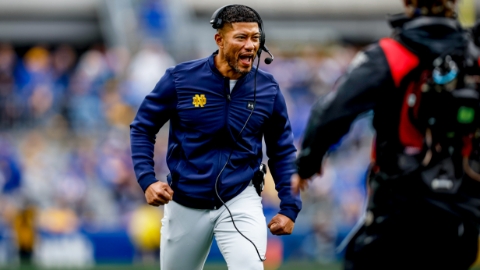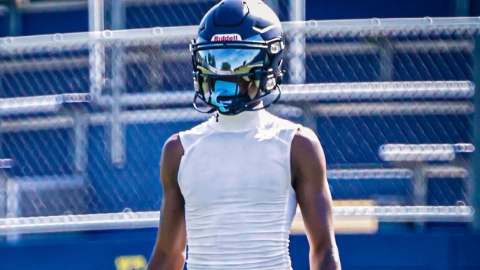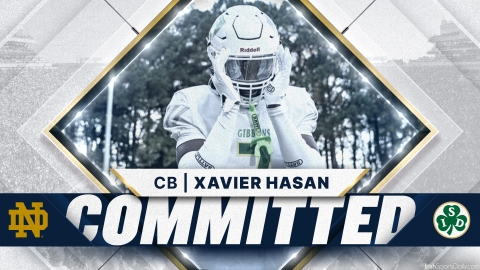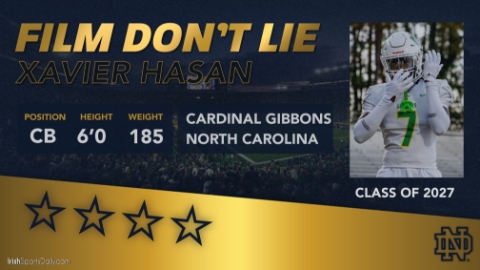What I Learned Taking the NCAA Division I Coaches Recruiting Test
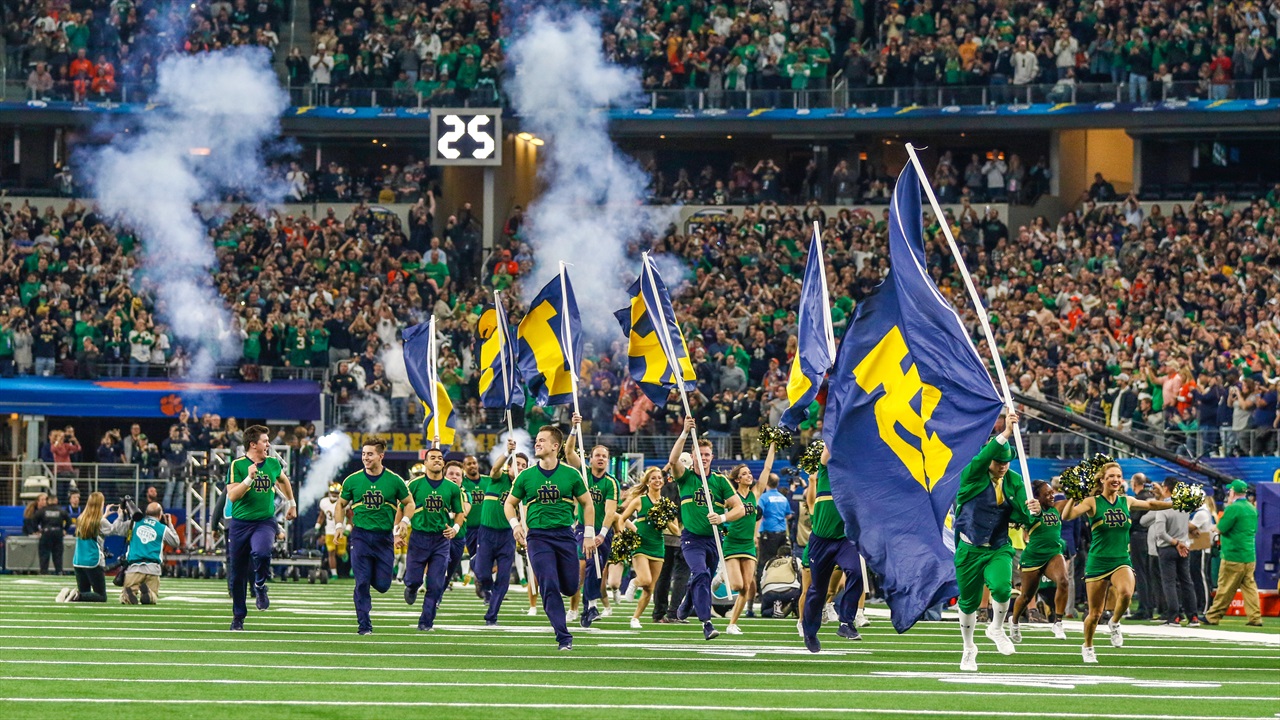
For college football coaches to start recruiting, each coach has to pass the NCAA Division I Coaches Certification Test.
The test consists of 30 questions and a 60-minute limit.
For a coach to start recruiting, they must earn a score of at least 80 percent.
The practice exam is public, so I decided to take it to see just how much I didn't know about college football recruiting.
The vocabulary is a bit challenging as a commit means signee in some questions and the wording could have been a little better on a few questions.
I got 19-of-30, which isn't bad for not studying or having any idea what was going to be asked, but it wasn’t a passing score either.
Let's take a look at what I learned during the test.
OFFICIAL VISITS
When college football went to spring official visits two years ago, it quickly came to light that schools had a limit of 56 official visits in a year. Prior to the rule change, the limit was often overlooked as teams were only hosting prospects in the fall and early winter, so in most cases, the number of prospects taking an official visit was reduced by the time they could get on campus.
Did you know there are circumstances where programs (other than a service academy) can go over the limit? I didn’t.
Schools can provide than 56 official visits in a year when:
- The institution does not subscribe to the National Letter of Intent in football.
- The institution hired a new football coach and the previous head coach used 75 percent or more of the permissible number of official visits for the academic year.
- The institution has six or less unused visits from the previous academic year to be used the following academic year.
In addition to those guidelines, a prospect can also take two official visits to the same school. The catch? The program has a new head coach since the original official visit.
And no, it is not permissible for a booster to host an occasional meal at their home for the recruit, student host or other student-athletes.
RULES RULES RULES
College football has some ridiculous rules and it starts with not being able to have a conversation with recruits at the prospect’s high school.
However, there are also strict guidelines when it comes to endorsing and helping recruits. Coaches cannot do any of the following:
- Endorse a noninstitutional event involving prospective student-athletes.
- Endorse a prospective student-athlete’s team, coach or athletics facility.
- Serve as a consultant for a noninstitutional event involving prospective student-athletes.
When it comes to camps, I’m not sure anyone is overly familiar with rules as some teams go to other campuses all the time, but there are also some flexible guidelines there.
- If the college would like to hire a local high school football coach to work its summer camp, it is actually permissible for the institution to hire the local high school coach. Now, there is an obvious catch. If that high school works the camp, the college can’t be recruiting any prospective student-athletes from the high school’s team and none of the high school coach’s former players can be on the college’s roster.
There are two things that must happen for an evaluation or camp not to be considered a tryout, but an open event conducted or held by the college.
- The event is not classified by age group or level of educational institution.
- The selection of participants is limited only by number, geographical area or some objective standard of performance.
It is not permissible for a program to hire a high school football coach as a volunteer in a summer camp if the institution is recruiting one of the high school’s prospective student-athletes.
Outside of the contact period, a member of the football coaching may speak at a banquet at which prospective student-athletes are in attendance only if:
- It is not a dead period and the coach doesn’t engage in evaluation activities.
- The coach does not make a recruiting presentation in conjunction with the appearance.
- The coach does not have direct contact with any prospective student-athlete in attendance.
Finally, if a college coach is from Texas and now coaches at Notre Dame, the coach can’t host an institutional camp in his hometown in Texas.
ALL-AMERICAN GAMES
The top prospects in the country head to San Antonio, Orlando and Hawaii to cap their seasons by playing in All-American games each year. It’s a week long event with practices and events throughout the week, but can college coaches contact prospects while they are at the event?
Coaches are prohibited from attending all-star contests and contacting prospective student-athletes participating in all-star contests from the time the recruits arrive in the location of the contest until he returns to either his home or academic institution.
So Brian Kelly and his staff can’t go show up at the hotel at the Under Armour game to surprise a five-star prospect.
There are also rules for a recruiting coordinator who might be in the same city as the recruit playing in an all-star game. The recruiting coordinator can’t make contact with the recruit or show up at the hotel.
FUN FACTS
- Schools can use recruiting services such as HUDL as long as it only produces video of prospective student-athletes and doesn’t provide information or analysis of recruits.
- When is a head coach allowed to make a phone call to a prospective student-athlete who is in their junior year of high school? They can make one call between April 15-May 31.
- In order for an SAT or ACT score to be used to certify the initial-eligibility of a recruit, it must come from the testing agency’s official test-score report. That means a high school transcript is not good enough.
Feel like you have a good grasp on college football recruiting rules? You can take the test here: Practice Exam
